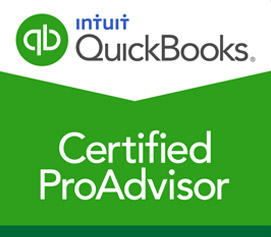
For many small businesses, the thought of getting audited by the IRS is terrifying. The mere notion of having to sit down with an auditor and justify every single expenditure and account for every penny of revenue is exhausting – even if they’ve kept meticulous records.
Some businesses manage to go through life never having the “pleasure” of meeting IRS auditors. Maybe they know something you don’t.
Red Flags to Watch For
There are several things that could trip an audit, and business owners would be wise to stay on top of these to help decrease their chances of getting audited. Here are a few red flags to be aware of.
Multiple Net Losses
If the IRS sees that you’ve reported net losses year over year for several years in a row, they’ll look twice at what you’re doing. Reporting net losses in more than two of the past five years is a red flag. Sole proprietors are at more of an audit risk here than other types of small businesses because sole proprietors often commingle business and personal funds. To reduce your risk of an audit, revisit both your income and your deductions. Make sure the deductions are reasonable and are supported by receipts or other documentation.
Consistent Late Filing
Any activity that draws the attention of the IRS increases your chance of being audited. Filing late certainly falls in this category. Make sure you file tax returns on time every year, even if that means you have to start the process on January 1.
Excessive Use of a Business Vehicle
Claiming 100% business use of a vehicle is another red flag. When deducting the business use of a vehicle, you must claim either the actual expense or the IRS standard mileage deduction (currently $0.58 per mile). Pay attention to where you’re driving and for what purpose, and document each trip carefully, including the date, the mileage, and the purpose of the trip.
Unusually High Salaries
Small business owners must pay themselves and their employees reasonable salaries for the work they perform. Salaries that seem out of line for the industry or the specific type of work being done may trigger an audit. This issue is often compounded when employers offer employees stock ownership in the company. Getting familiar with average salaries in your industry can help you avoid this red flag.
Too Many Deductions
Small business owners should give some thought to the items they claim as business expenses. Too many deductions, or too many in any one category, may trigger the IRS’s curiosity. IRS guidance states that an expense must be “ordinary and necessary” to qualify as a deduction. Compare year-over-year deductions to make sure that everything is consistent. If you see something that jumps out, chances are good that the IRS will, too.
Call Adams Accounting for Help
There are other red flags to watch out for besides the ones mentioned above. Small business owners have enough on their plates without having to take the time for an audit. If you need help getting your taxes together, give Adams Accounting Solutions a call. They’ll help you sort through your taxes and help you avoid the obvious red flags.



